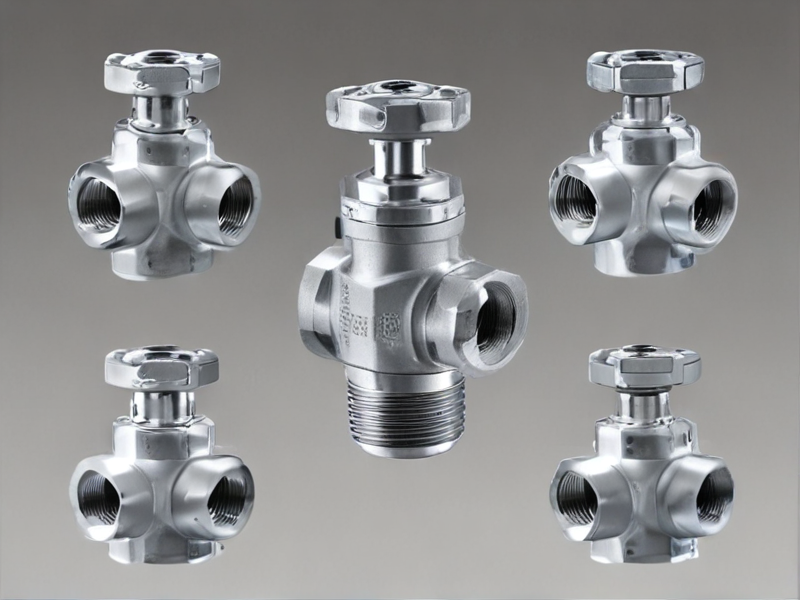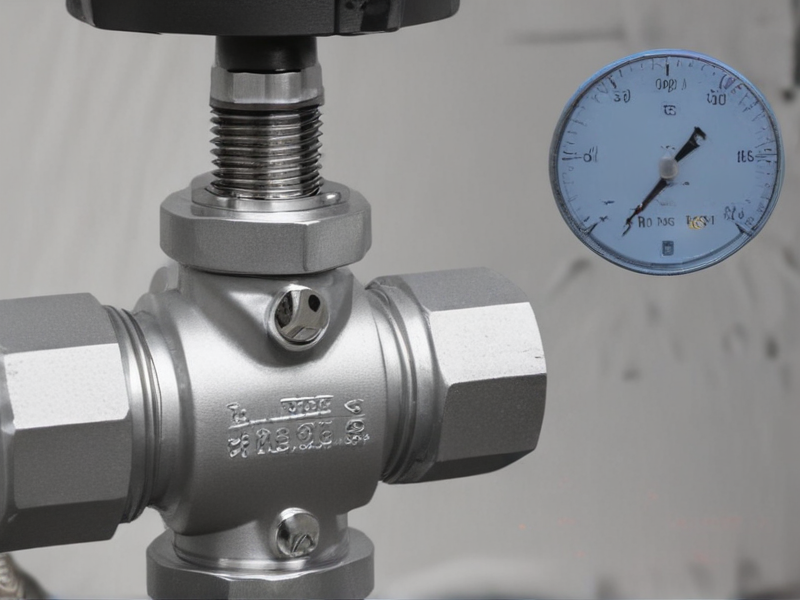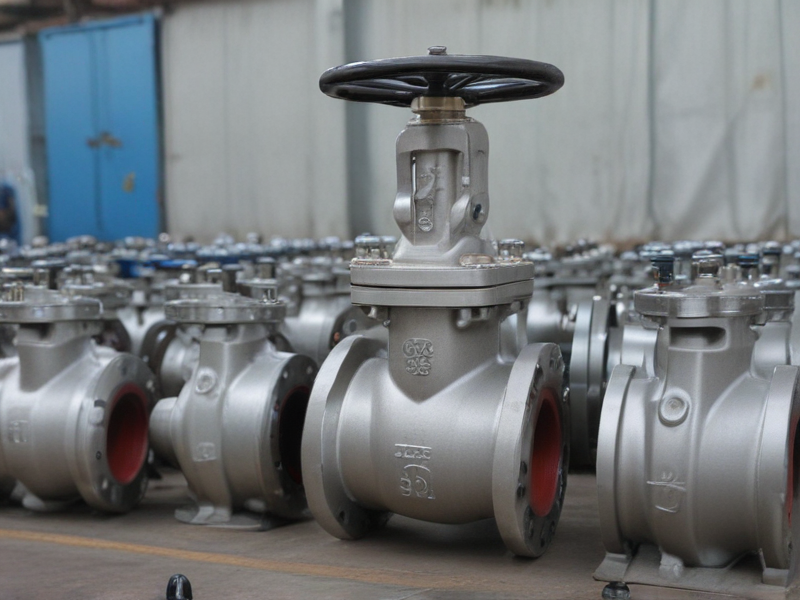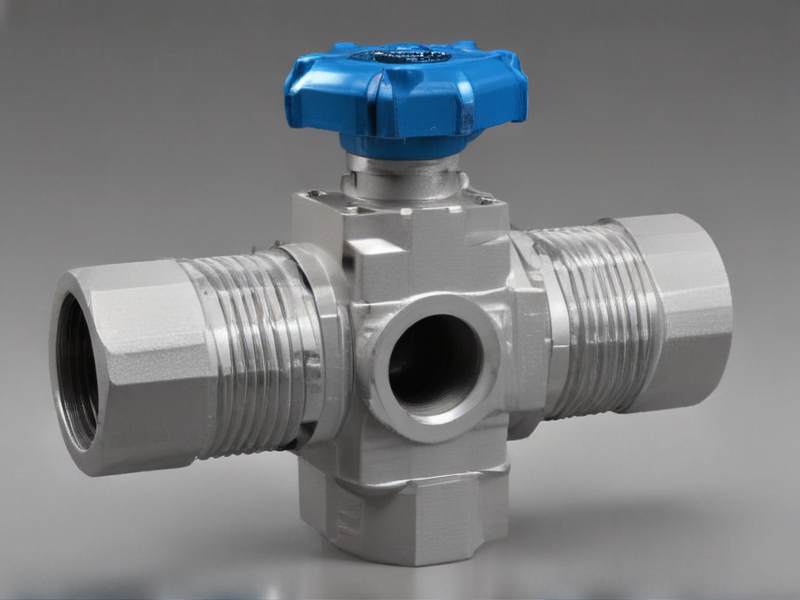Top threaded valve in China introduce,list main products and website if have
Top threaded valve manufacturers in China offer a wide range of high-quality products designed for various industrial applications. Some of the main products provided by these companies include ball valves, gate valves, globe valves, check valves, butterfly valves, and plug valves. These valves are commonly used in industries such as oil and gas, power generation, water treatment, and chemical processing.
One of the leading manufacturers of threaded valves in China is Zhejiang Jieyu Valve Co., Ltd. The company offers a comprehensive range of valves, including ball valves, gate valves, and globe valves, among others. Their products are known for their superior quality, durability, and reliable performance.
Another top threaded valve manufacturer in China is China Valves Technology, Inc. The company specializes in producing a wide variety of valves, including butterfly valves, check valves, and plug valves. Their valves are designed to meet the highest industry standards and are widely used in many different industries worldwide.
For more information about these companies and their products, you can visit their official websites:
Zhejiang Jieyu Valve Co., Ltd.: www.jy-valve.com
China Valves Technology, Inc.: www.cvalve.com
These top threaded valve manufacturers in China are trusted by customers worldwide for their high-quality products and exceptional customer service. Whether you need a valve for a specific industrial application or for general use, these companies have the expertise and experience to meet your needs.

Types of threaded valve
There are several types of threaded valves used in a variety of applications to control the flow of liquids or gases. Some common types include:
1. Ball valves – A ball valve has a spherical closure unit that allows for quick and easy on/off control of the flow. The ball has a hole or port through the center that aligns with the flow path when open and blocks the flow when closed.
2. Gate valves – Gate valves have a flat or wedge-shaped gate that slides into the flow path to control the flow. These valves are often used in applications where a tight shut-off is required.
3. Globe valves – Globe valves have a spherical closure unit that moves up and down to control the flow. These valves are used in applications where throttling and regulating the flow is necessary.
4. Butterfly valves – Butterfly valves have a flat disc that rotates around a central axis to control the flow. These valves are commonly used in large piping systems for quick and efficient shut-off.
5. Needle valves – Needle valves have a long, tapered needle-like stem that is threaded into a seat to control the flow. These valves are often used in applications where precise regulation of flow is required.
Each type of threaded valve has its own unique features and advantages that make it suitable for specific applications. It is important to select the right type of valve based on the requirements of the system and the desired level of control over the flow.
Pros and Cons of Using threaded valve
Threaded valves have both pros and cons that should be considered before deciding to use them in a particular application.
One of the main advantages of threaded valves is their ease of installation. They can be easily screwed onto a pipe or fitting without the need for specialized tools or equipment. This makes them a convenient and cost-effective option for many plumbing systems. Additionally, threaded valves can be easily replaced or removed if necessary, making maintenance and repairs simpler.
Another benefit of threaded valves is their versatility. They are available in a wide range of sizes, materials, and configurations, making it easy to find a valve that meets the specific requirements of a particular system. Threaded valves are also compatible with a variety of pipe materials, such as PVC, copper, and steel, further increasing their versatility.
However, threaded valves also have some limitations that should be taken into account. One of the main drawbacks of threaded valves is their potential to leak if not installed properly. The threads can become damaged over time, leading to leaks that can cause water damage and other issues. Additionally, threaded valves may not be suitable for high-pressure or high-temperature applications, as the threads can fail under extreme conditions.
In conclusion, threaded valves offer a number of advantages, including ease of installation, versatility, and compatibility with different pipe materials. However, they also have limitations, such as the potential for leaks and reduced suitability for certain applications. Before choosing to use threaded valves, it is important to carefully consider these pros and cons to ensure they are the right choice for the specific plumbing system in question.
threaded valve Reference Specifications (varies for different product)
A threaded valve is a type of valve that is designed with threaded connections at both ends, allowing for easy installation and removal. These valves are commonly used in plumbing, gas, and water systems, as well as in other industrial applications.
The specifications for threaded valves can vary depending on the specific product and the requirements of the application. However, there are some common reference specifications that are typically used for these valves.
One key specification for threaded valves is the size of the threads. This is usually given in terms of the nominal pipe size (NPS) and the thread type, such as NPT (National Pipe Thread) or BSP (British Standard Pipe). The material of construction is another important specification, with common materials including brass, stainless steel, and PVC.
Pressure rating is also a critical specification for threaded valves, indicating the maximum pressure that the valve can safely withstand. This is typically measured in pounds per square inch (psi) or bar.
Temperature rating is another important specification, indicating the maximum and minimum temperatures at which the valve can be safely used. This is important for ensuring the valve’s performance and longevity in different operating conditions.
In addition to these basic specifications, threaded valves may also have specific requirements for features such as flow capacity, seal material, and end connections. It is important to refer to the manufacturer’s specifications for the specific threaded valve being used to ensure proper selection and installation for the intended application.

Applications of threaded valve
Threaded valves are commonly used in various industries and applications due to their versatility and ease of installation. Some of the key applications of threaded valves include:
1. Plumbing and irrigation systems: Threaded valves are widely used in plumbing and irrigation systems to control the flow of water or other fluids. These valves are easy to install and provide a reliable solution for regulating the flow of water in residential, commercial, and industrial buildings.
2. HVAC systems: Threaded valves are commonly used in heating, ventilation, and air conditioning (HVAC) systems to regulate the flow of air or liquids. These valves help in maintaining the desired temperature and pressure levels in HVAC systems, ensuring proper functioning and efficiency.
3. Process control systems: Threaded valves are suitable for use in process control systems in industries such as manufacturing, chemical processing, and pharmaceuticals. These valves help in controlling the flow of fluids or gases in various processes, ensuring smooth operations and maintaining safety standards.
4. Fire protection systems: Threaded valves are essential components in fire protection systems, such as sprinkler systems and fire hydrants. These valves help in controlling the flow of water in case of a fire, allowing for effective suppression and prevention of fire damage.
5. Oil and gas industry: Threaded valves are commonly used in the oil and gas industry for controlling the flow of oil, gas, and other fluids in pipelines and processing facilities. These valves play a crucial role in ensuring the safe and efficient transportation of oil and gas products.
Overall, threaded valves are widely used in a variety of applications where reliable flow control is essential. Their ease of installation and versatility make them a popular choice for industries looking for efficient and cost-effective solutions for regulating fluid flow.
Material of threaded valve
Threaded valves can be made from a variety of materials depending on the specific application and requirements. Common materials used for threaded valves include brass, stainless steel, bronze, cast iron, and PVC.
Brass is a popular choice for threaded valves due to its corrosion resistance and durability. It is also relatively easy to machine, allowing for precise threading of valve components. Brass valves are commonly used in water supply systems, HVAC systems, and other industrial applications.
Stainless steel is another commonly used material for threaded valves, especially in applications where corrosion resistance is a critical factor. Stainless steel valves are highly durable and can withstand high temperatures and pressures. They are often used in industrial processes, chemical plants, and marine environments.
Bronze is a strong and durable material that is commonly used for threaded valves in seawater applications. Bronze valves are resistant to corrosion and have a high resistance to wear and tear, making them ideal for use in marine environments.
Cast iron threaded valves are often used in applications where high pressure and temperature ratings are required. Cast iron valves are strong, durable, and can withstand harsh conditions, making them suitable for use in steam systems, oil and gas pipelines, and other industrial applications.
PVC (polyvinyl chloride) threaded valves are lightweight, corrosion-resistant, and easy to install. They are commonly used in water supply systems, irrigation systems, and chemical processing plants.
In conclusion, the material of threaded valves should be carefully selected based on the specific requirements of the application, taking into consideration factors such as corrosion resistance, durability, temperature and pressure ratings, and compatibility with the fluid being controlled.
Quality Testing Methods for threaded valve and how to control the quality
One of the primary quality testing methods for threaded valves is the pressure testing method. This involves subjecting the valve to different pressure levels to ensure that it can withstand the specified working pressure without any leakages. The valve is pressurized gradually, and the pressure is monitored to detect any leaks or deformations. This test helps to ensure the integrity of the valve and its capability to perform under pressure.
Another important quality testing method is the flow testing method. This involves testing the valve’s flow capacity by passing a specified amount of fluid through the valve and measuring the flow rate. This test helps to verify that the valve can maintain the required flow rate and does not cause any obstructions or pressure drop.
Visual inspection is also a crucial quality testing method for threaded valves. This involves visually examining the valve for any defects, such as cracks, corrosion, or misalignments. It also includes checking the threading to ensure that it is properly aligned and free from any defects that may affect the valve’s performance.
To control the quality of threaded valves, it is important to have strict quality control procedures in place throughout the manufacturing process. This can include regular inspection of raw materials, rigorous testing of finished products, and prompt detection and correction of any defects or issues that may arise. Additionally, having trained and skilled personnel to carry out quality testing and inspection can help ensure that the valves meet the required standards.
Overall, implementing robust quality testing methods, such as pressure testing, flow testing, and visual inspection, and maintaining strict quality control procedures can help to ensure the quality and reliability of threaded valves. By continuously monitoring and improving the quality control processes, manufacturers can produce high-quality valves that meet the specified standards and requirements.

The Work Process and how to use threaded valve
A threaded valve is a type of valve that is designed with threaded connections on both ends, allowing for easy installation into a pipeline system. The work process of using a threaded valve involves several steps to ensure proper installation and operation.
First, the threaded valve should be inspected for any damage or defects before installation. Once the valve is deemed to be in good condition, the next step is to prepare the pipeline by cleaning and deburring the threaded connections to ensure a proper seal.
Next, apply a suitable thread sealant to the male threads of the valve to prevent leaks and ensure a tight connection. Carefully thread the valve into the pipeline, being cautious not to cross-thread or over-tighten the valve.
Once the valve is securely in place, use a wrench to tighten the connections, being careful not to over-torque the valve which can damage the threads and compromise the seal. After the valve is properly installed, test for leaks by pressurizing the system and inspecting for any signs of leakage.
In conclusion, using a threaded valve involves inspecting the valve, preparing the pipeline, applying thread sealant, threading the valve into the pipeline, tightening the connections, and testing for leaks. Following these steps will ensure proper installation and operation of the threaded valve in a pipeline system.
threaded valve Importing questions including Cost,Supplier,Sample,Certification and Market
Importing threaded valves can be a cost-effective solution for businesses looking to source quality valves at competitive prices. When considering importing threaded valves, it is important to do thorough research on potential suppliers to ensure they meet your quality standards and can provide a reliable supply chain.
Cost is a crucial factor to consider when importing threaded valves, as it includes not just the cost of the valves themselves but also shipping, customs duties, and any other associated fees. It is important to get quotes from multiple suppliers to compare prices and negotiate the best deal possible.
Choosing a reputable supplier is essential to ensure the quality and reliability of the threaded valves. Look for suppliers with experience in manufacturing valves and a track record of delivering products on time and meeting quality standards. Requesting samples from potential suppliers can help you assess the quality of their products before making a large purchase.
Certification is also an important consideration when importing threaded valves, as it ensures that the products meet international standards and regulations. Look for suppliers that have relevant certifications such as ISO 9001 or CE to ensure that the valves are of high quality and safe to use.
Market research is crucial before importing threaded valves to ensure there is demand for the product in your target market. Consider factors such as competition, pricing, and market trends to determine the potential success of importing threaded valves. By carefully considering these factors, you can make informed decisions when importing threaded valves for your business.
How to find and select check reliable threaded valve manufacturers in China
Finding reliable threaded valve manufacturers in China can be achieved by conducting thorough research online, utilizing business directories, and attending industry trade shows and exhibitions.
To begin your search, consider visiting popular sourcing websites such as Alibaba, Global Sources, and Made-in-China. These platforms allow you to browse through a vast array of suppliers and manufacturers, read reviews, and compare prices and product quality.
Another effective way to find reputable threaded valve manufacturers in China is by networking with industry professionals, connecting with sourcing agents, or seeking recommendations from other companies in the same industry.
When selecting a manufacturer, look for companies that have a strong reputation for producing high-quality products, have a track record of successful partnerships with international clients, and offer competitive pricing and flexible terms.
It is also important to ensure that the manufacturer is certified and compliant with industry standards and regulations. Request samples, conduct factory audits, and communicate clearly about your specifications and requirements to ensure that the manufacturer can meet your needs.
Overall, taking the time to research and vet potential suppliers will help you ultimately find a reliable threaded valve manufacturer in China that can meet your business needs.
Background Research for threaded valve manufacturers Companies in China, use qcc.com archive.org importyeti.com
Threaded valve manufacturers in China can be easily found through websites like qcc.com, archive.org, and importyeti.com. These platforms provide a comprehensive list of companies operating in the valve manufacturing industry in China. These companies specialize in producing various types of valves, including threaded valves, which are commonly used in industrial applications for controlling the flow of fluids and gases.
The Chinese market is known for its high-quality and cost-effective valve manufacturing, making it a popular choice for businesses looking to source valves for their operations. Companies listed on these websites offer a wide range of threaded valves, including ball valves, gate valves, globe valves, check valves, and butterfly valves.
When selecting a threaded valve manufacturer in China, it is important to consider factors such as product quality, pricing, lead times, and after-sales support. Many of the companies listed on these websites have been in the valve manufacturing business for several years and have a proven track record of delivering high-quality products to customers worldwide.
In conclusion, by utilizing platforms like qcc.com, archive.org, and importyeti.com, businesses can easily find reputable threaded valve manufacturers in China that can meet their specific requirements for threaded valves. With a focus on quality and customer satisfaction, these companies offer a reliable source for threaded valves for various industrial applications.

Price Cost Research for threaded valve manufacturers Companies in China, use temu.com and 1688.com
For threaded valve manufacturers in China, Temu.com and 1688.com are excellent resources for pricing and cost research. These platforms provide a wide range of suppliers and manufacturers offering various types of threaded valves at competitive prices.
When researching on Temu.com, users can easily filter their search results by price range, materials, usage, and more. This allows manufacturers to quickly find threaded valves that meet their specific requirements and budget. Additionally, Temu.com provides detailed product descriptions, photos, and user reviews to help manufacturers make informed purchasing decisions.
Similarly, 1688.com is another popular platform for sourcing threaded valves in China. With a vast database of suppliers, manufacturers can easily compare prices, minimum order quantities, and shipping terms. Many suppliers on 1688.com offer bulk discounts and customizable options, allowing manufacturers to negotiate favorable pricing for their orders.
By utilizing Temu.com and 1688.com, threaded valve manufacturers in China can conduct comprehensive pricing and cost research to find the best deals and suppliers for their business needs. These platforms offer a convenient and efficient way to source high-quality threaded valves at competitive prices, ultimately helping manufacturers save time and money in their procurement process.
Shipping Cost for threaded valve import from China
The shipping cost for importing threaded valves from China can vary depending on a few factors such as the weight and size of the cargo, the shipping method chosen, and the distance between the origin and destination.
Typically, threaded valves are relatively small and lightweight, so air freight may be a cost-effective option for shipping them from China. The cost of air freight can range from $2 to $5 per kilogram, with an additional handling fee of around $50 to $100 per shipment.
If you choose to ship the threaded valves by sea, the cost will be lower but the transit time will be longer. The cost of sea freight can vary depending on the volume of the cargo, but on average, it can range from $800 to $1200 for a small shipment of threaded valves.
You may also need to consider additional charges such as customs clearance fees, import duties, and taxes when importing threaded valves from China. These charges can add up to the total shipping cost, so it is important to factor them into your budget.
Overall, the shipping cost for importing threaded valves from China can be kept under control by choosing the most cost-effective shipping method, optimizing the packaging to reduce weight and volume, and planning ahead to avoid rush delivery charges. It is recommended to work with a reliable freight forwarder or shipping agent to help you navigate the logistics and ensure a smooth shipping process.

Compare China and Other threaded valve Markets: Products Quality and Price,Visible and Hidden Costs
China has become a major player in the global threaded valve market, offering a wide range of products at competitive prices. While the quality of Chinese threaded valves has improved in recent years, there are still concerns about the overall reliability and consistency of these products compared to other markets such as Europe and the United States.
In terms of product quality and price, Chinese threaded valves are typically more affordable than those from other markets. However, this lower price point may come at the cost of lower overall quality and reliability. This can lead to increased maintenance and replacement costs over time, as well as potential risks to safety and performance.
When considering visible and hidden costs, it’s important to factor in the potential for defects, failures, and product recalls that may arise with Chinese threaded valves. While the initial purchase price may be lower, these additional costs can add up quickly and negate any initial savings.
In contrast, threaded valves from other markets may come at a higher upfront cost but offer higher quality, reliability, and performance. These products may be more durable and longer-lasting, resulting in lower maintenance and replacement costs over time. Additionally, the reputation and track record of manufacturers from these markets may provide added peace of mind and assurance of product quality.
Ultimately, when choosing between Chinese threaded valves and those from other markets, it’s important to weigh the upfront cost against the potential long-term costs and benefits. While Chinese threaded valves may offer a more affordable option, it’s essential to consider the overall quality, reliability, and potential hidden costs associated with these products.
Custom Private Labeling and Branding Opportunities with Chinese threaded valve Manufacturers
Chinese threaded valve manufacturers offer custom private labeling and branding opportunities for businesses looking to differentiate their products in the market. By partnering with a Chinese manufacturer, companies can create their own unique brand identity and establish themselves as leaders in the industry.
With the ability to customize valve designs, materials, and sizes, businesses can tailor their products to meet the specific needs of their target market. Manufacturers in China have extensive experience in working with international clients and can provide quality assurance and competitive pricing for private label projects.
Whether companies are looking to launch a new product line or rebrand an existing one, Chinese threaded valve manufacturers can help bring their vision to life. From product development to packaging design, manufacturers offer a comprehensive range of services to support businesses in building a strong and recognizable brand.
By leveraging the expertise and resources of Chinese manufacturers, businesses can access a wide range of customization options and cost-effective solutions for private labeling and branding. With a focus on quality control and customer satisfaction, manufacturers in China are trusted partners for businesses looking to enhance their product offerings and expand their market presence.
Tips for Procurement and Considerations when Purchasing threaded valve
When purchasing threaded valves, it is important to consider the following factors:
1. Material: Choose a threaded valve made of a durable and corrosion-resistant material such as brass, stainless steel, or PVC, depending on the application and the type of fluid being controlled.
2. Size: Select the right size of threaded valve that fits the pipe or fitting it will be connected to. Ensure that the size of the valve matches the size of the piping system.
3. Pressure rating: Consider the maximum pressure that the threaded valve will be subjected to and choose a valve with a suitable pressure rating to ensure safe and reliable operation.
4. Temperature rating: Check the temperature rating of the threaded valve to ensure that it can withstand the temperature of the fluid being controlled without deforming or malfunctioning.
5. Flow rate: Consider the flow rate requirements of the system and select a threaded valve with the appropriate flow capacity to ensure efficient operation.
6. End connections: Choose a threaded valve with compatible end connections (e.g., NPT or BSP threads) to ensure easy installation and a leak-free seal.
7. Certifications: Look for threaded valves that are certified by reputable organizations such as the American Society of Mechanical Engineers (ASME) or the International Organization for Standardization (ISO) to ensure quality and compliance with industry standards.
When procuring threaded valves, it is advisable to request quotes from multiple suppliers, compare prices, and negotiate favorable terms. Consider factors such as lead times, delivery costs, warranty, and after-sales support before making a decision. Additionally, seek feedback from other customers or industry experts to ensure that the chosen threaded valve meets your requirements and expectations.

FAQs on Sourcing and Manufacturing threaded valve in China
1. Can I source threaded valves from China?
Yes, you can source threaded valves from China. China is one of the leading manufacturers of industrial valves, including threaded valves.
2. What are the benefits of sourcing threaded valves from China?
Sourcing threaded valves from China can offer cost savings due to lower labor and production costs. China also has a wide range of suppliers offering a variety of options in terms of quality and price.
3. How can I find a reliable manufacturer for threaded valves in China?
To find a reliable manufacturer for threaded valves in China, you can start by researching online, attending trade shows, or working with a sourcing agent who has experience in the industry. It is important to conduct thorough due diligence and quality checks before ordering from any supplier.
4. What is the manufacturing process for threaded valves in China?
The manufacturing process for threaded valves in China typically involves casting, machining, assembly, and testing. The materials used can vary depending on the application, but common materials include stainless steel, brass, and carbon steel.
5. Are there any quality control measures in place for threaded valves manufactured in China?
Yes, reputable manufacturers in China adhere to quality control measures such as ISO certification, product testing, and inspections to ensure the quality and reliability of their threaded valves. It is important to work with suppliers who have a proven track record of meeting international quality standards.
Why contact sourcifychina.com get free quota from reliable threaded valve suppliers?
Sourcifychina.com is a reputable platform that connects businesses with reliable threaded valve suppliers in China. By contacting Sourcifychina.com and requesting a free quota from their trusted suppliers, you can benefit from their network of high-quality manufacturers without the hassle of vetting potential suppliers yourself.
Threaded valves are crucial components in various industries, including plumbing, oil and gas, and manufacturing. Choosing a reliable supplier is essential to ensure the quality and performance of these valves. Sourcifychina.com has already screened and verified their suppliers, guaranteeing that you are sourcing from reputable and trustworthy manufacturers.
By obtaining a free quota through Sourcifychina.com, you can access competitive pricing and explore different options from multiple suppliers. This can help you make informed decisions based on your specific requirements and budget. Additionally, working with a reliable supplier can save you time and resources by providing efficient communication, on-time delivery, and consistent quality.
Overall, contacting Sourcifychina.com for a free quota from their threaded valve suppliers offers a convenient and reliable solution for businesses looking to streamline their sourcing process and secure high-quality products. Partnering with a trusted platform like Sourcifychina.com can give you peace of mind and confidence in your procurement decisions.
